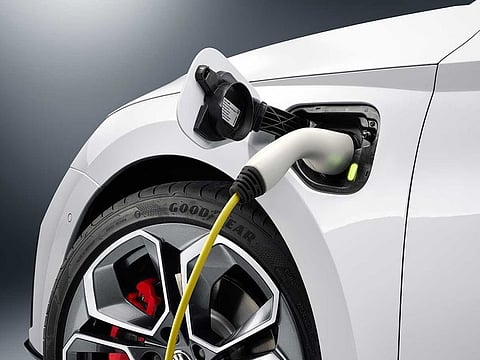Alliances will speed up networks for UAE’s EV ownership journey
Transportation forms key part of UAE’s sustainable drive - that means speeding up change

As the UAE accelerates its transition from an oil-based economy towards a more diversified and sustainable knowledge-based economy, we have witnessed organisations taking an almost laser-focused approach to how they can contribute to this movement.
One very exciting industry that is logging in impressive results is the automobile sector, with key market players setting hard targets for the expansion of their EV fleets in order to curb emissions and meet new climate change targets. The sale of electric cars doubled to a record 6.6 million in 2021, resulting in an estimated 16.5 million electric cars on the world’s roads by the end of that year – triple that in 2018. According to reports, this momentum has carried over into 2022, with global passenger EV sales growing 61 per cent year-on-year to 2.18 million units in the second quarter of 2022.
In line with global trends, the UAE has also witnessed a growing interest among residents in owning a hybrid or fully electric vehicle. More than 50 per cent of residents expressed an interest in switching to an EV, while 25 per cent said that they would wait for more options to be launched before buying one.
EV as preference
Furthermore, around 14 per cent revealed that they had recently bought a petrol vehicle but would have preferred to get a hybrid or EV instead. This positive sentiment, combined with the eagerness of car manufacturers to meet the increase in demand for EVs, is in line with various initiatives introduced by the wise leadership of the UAE to invest in sustainable sectors that directly contribute to the future growth of the economy. Chief among them is the UAE National Smart Mobility Strategy, which has identified sustainability as a key objective in combatting climate change.
As more consumers choose transport powered by clean energy, it is important to have the necessary infrastructure in place to support this trend. Beeah Group, for example, partnered with Crescent Enterprises in 2018 to establish the UAE’s first sustainable mobility solutions provider, ION, which is focused on creating a zero-emissions transport infrastructure in the MENA region and beyond.
This is significant because low-carbon mobility solutions are not only the future of the transportation industry but essential to achieving the sustainable development of our economies.
To bring more of these technologies to markets and create a framework that benefits the people and protects our planet, it is vital to continue to forge key partnerships between government entities and private companies. With car manufacturers, mobility tech providers, and policymakers all on the same page and working for a brighter tomorrow, it is an exciting time to be part of the narrative that is transforming our cities and strengthening our economy.




